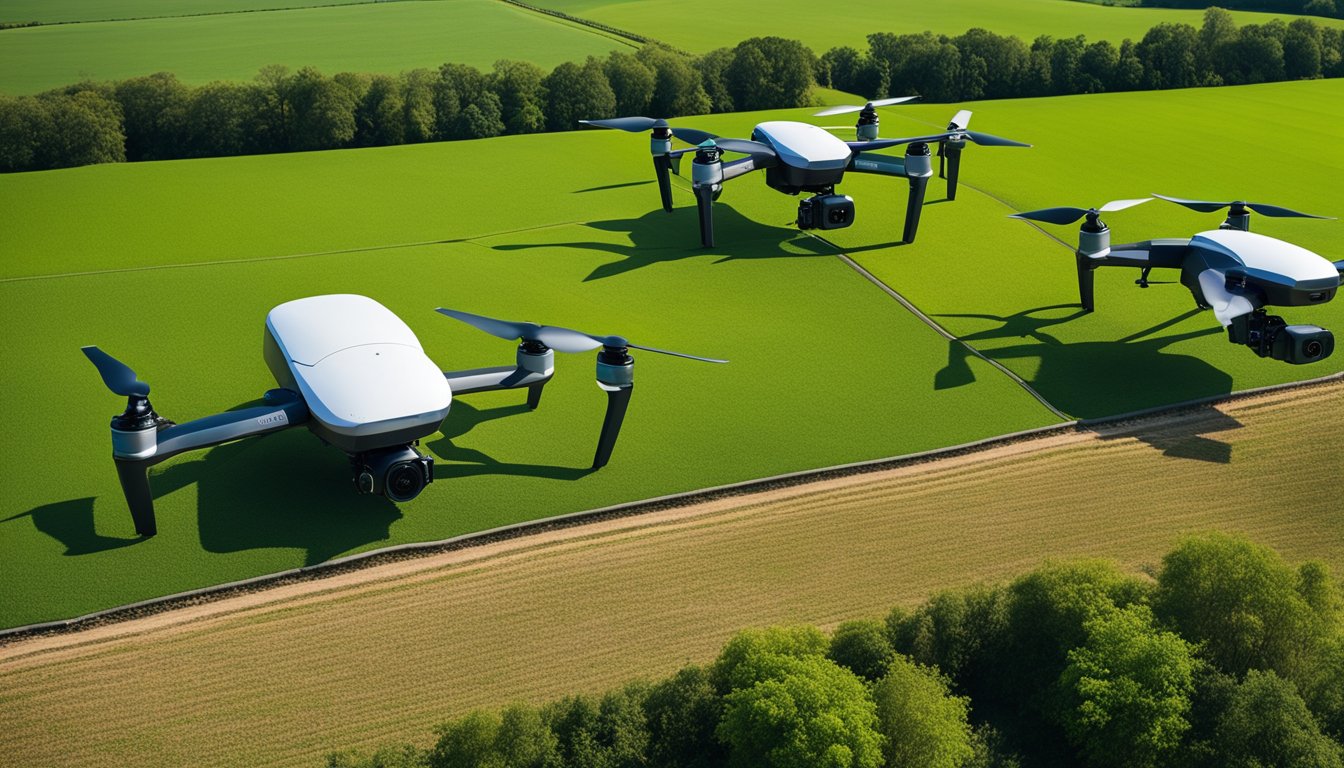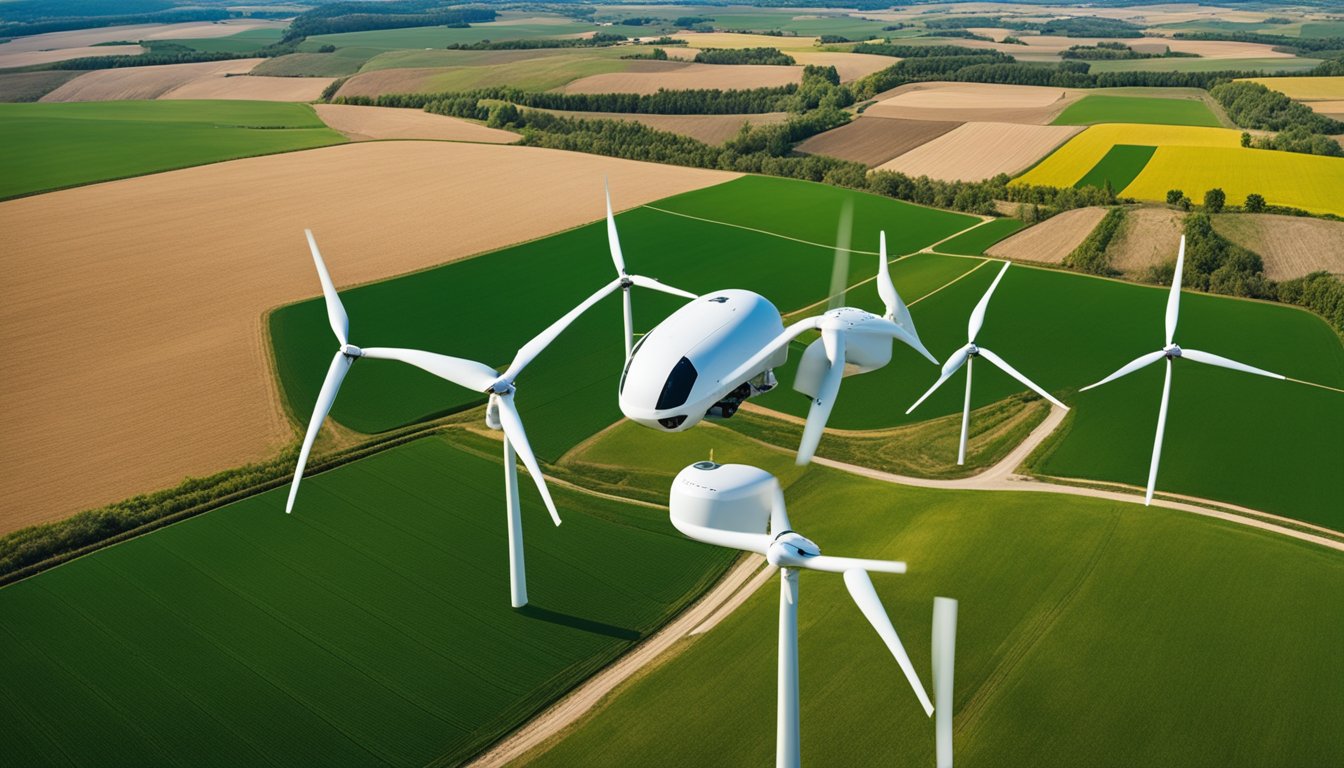Late updated: 14 Feb 2025 14:02
Written by: Oliver Bennett
Harnessing AI for Efficient Rural UK's Resource Management: Strategies and Innovations
Artificial Intelligence is revolutionising rural UK's approach to resource management, offering innovative solutions to traditional farming and agricultural practices. By integrating AI-driven technologies, we can enhance efficiency and sustainability, unlocking new potential in managing crops, livestock, and essential resources. These advancements are not only reshaping the landscape of rural UK farming but also ensuring that we are better equipped to face future challenges.

Incorporating AI into rural settings allows us to leverage advanced tools like smart sensors, machine learning, and predictive analytics. This means improved decision-making capabilities for farmers, with real-time data on soil conditions, weather patterns, and crop health, enabling more precise management of resources. As we continue to explore these new technologies, the potential for improvements in food security and productivity is immense.
Despite the promises, we must remain mindful of the challenges that accompany AI integration. The adaptation process requires careful planning and education to ensure successful implementation and to address potential resistance within the community. Our journey towards AI-enhanced resource management holds significant promise, paving the way for a more efficient and sustainable rural future.
Key Takeaways
- AI enhances efficiency and sustainability in rural UK's resource management.
- Smart sensors and predictive analytics improve decision-making in agriculture.
- Adapting AI technologies poses challenges that require careful planning.
AI Technologies in the Rural Landscape
Incorporating AI technologies into rural areas is revolutionising the management of resources. Innovations like precision farming, sustainable resource management, and enhanced digital connectivity are driving this transformation. These advancements are not just enhancing productivity and economic growth but are also paving the way for sustainable practices in agriculture.
Precision Farming and Smart Technology
Precision farming leverages AI to optimise crop yields and livestock management. By employing smart sensors and real-time data analysis, we can monitor soil conditions, moisture levels, and crop health. This technology enables farmers to make informed decisions, leading to more efficient use of resources.
AI systems facilitate detailed farm data management, which results in effective strategies for addressing challenges such as pest control and variable climate conditions. Precision farming utilises digital twins to simulate farm environments, allowing for better planning and reduced resource waste. This sector's growth is directly linked to enhanced productivity and food security.
Sustainable Resource Management
Sustainable resource management in rural UK focuses on minimising environmental impacts and maximising resource efficiency. We see a shift towards sustainable agricultural practices that integrate AI to reduce the carbon footprint and greenhouse gas emissions.
Robotics and AI-driven systems automate tasks, decreasing labour costs and optimising energy use. Through AI, farmers can adopt renewable energy solutions and sustainable practices, ensuring a balance between economic growth and environmental health. Real-time monitoring supports the smart allocation of water and fertilisers, safeguarding natural resources for future generations.
Digital Infrastructure and Connectivity
Digital infrastructure plays a pivotal role in transforming rural landscapes. Enhanced 5G connectivity and robust AI infrastructure enable seamless communication and data exchange. These technologies support cloud computing and data centres necessary for managing complex farming operations on a large scale.
Improving digital connectivity also fosters collaboration among farmers, researchers, and technology providers. This collaboration is crucial for addressing challenges related to data privacy and cyber security. By enhancing digital infrastructure, we ensure that rural areas are not left behind in the digital revolution, leading to economic opportunities and improved quality of life.
Challenges and Opportunities of AI Integration

Integrating AI into rural UK agriculture introduces both challenges and prospects. AI advancements have the potential to transform resource management, enhance efficiency, and drive sustainable agriculture. Significant factors include data utilisation for actionable farming insights and considerations surrounding policy and ethics.
Data Utilisation and Farming Insights
AI in agriculture offers unprecedented opportunities to optimise operations through smart technology and data analytics. The power of predictive analytics allows us to anticipate and address issues such as crop monitoring and biodiversity management. By leveraging satellite data and geospatial AI, we can refine resource efficiency, which is vital in managing energy consumption and reducing methane emissions.
Precision agriculture tools, like AI-powered digital twins, provide detailed insights into soil and crop conditions. These insights lead to evidence-based decisions, improving yields and protecting natural resources. Yet, the digital divide in rural areas poses a barrier, limiting farmers' access to essential technology. Collaborations with Public Services and strategic investment in digital technology are crucial to overcoming this divide.
Policy, Partnerships, and Ethical Considerations
Effective AI integration demands a nuanced approach to policy and partnerships. Strategic planning with governmental bodies, rural businesses, and public service delivery can ensure AI solutions are effectively employed while addressing ethical considerations. For instance, maintaining animal welfare, such as monitoring calf mortality rates in sustainable beef farming, is essential.
Financial support through grants and incentives fosters innovation. Encouraging partnerships with tech firms enables access to new AI innovations. The ethical considerations in AI applications, especially concerning data privacy and fairness, are paramount. To address these, we advocate for robust policies ensuring that generative AI solutions remain fair and transparent. Navigating these challenges and opportunities can lead us to a smarter, more sustainable agricultural future for the rural UK.
Frequently Asked Questions

Artificial intelligence plays a pivotal role in transforming resource management in rural UK. By enhancing agricultural yield forecasts, improving water and energy management, and optimising supply chain logistics, AI aids the countryside in adapting to climate challenges. Let us dive deeper into each specific area.
How can artificial intelligence improve agricultural yield forecasts in rural UK areas?
AI employs algorithms to analyse weather patterns, soil conditions, and historical data, providing more accurate yield forecasts. This helps farmers make informed decisions, optimising planting strategies and improving harvest outcomes.
What role does AI play in the management of water resources in UK's countryside?
AI systems monitor water usage and rainfall patterns, offering valuable insights into efficient water distribution. Smart irrigation technologies adjust water application based on precise data, ensuring conservation and sustainability.
In what ways can machine learning contribute to sustainable farming practices in the UK?
Machine learning aids in pest and disease detection by analysing crop images. Early identification of threats minimises chemical use, promoting eco-friendly practices. Additionally, AI-driven crop rotation planning improves soil health and boosts sustainability.
How can AI be used to optimise rural supply chain logistics in the United Kingdom?
AI analyses traffic, weather, and demand data to streamline logistics operations. This helps minimise delivery times and reduce costs by predicting optimal routes and schedules for transporting goods.
What are the benefits of implementing AI for rural energy management in the UK?
AI enhances energy management by predicting demand and balancing supply. Smart grids utilise AI to integrate renewable sources effectively, reducing energy waste and ensuring reliable power supply to rural areas.
How does AI assist in predicting and mitigating the effects of climate change on rural UK communities?
AI models simulate climate scenarios to predict changes in weather and environmental conditions. By providing timely alerts and data-driven recommendations, AI assists communities in preparing for and mitigating climate-related impacts.
